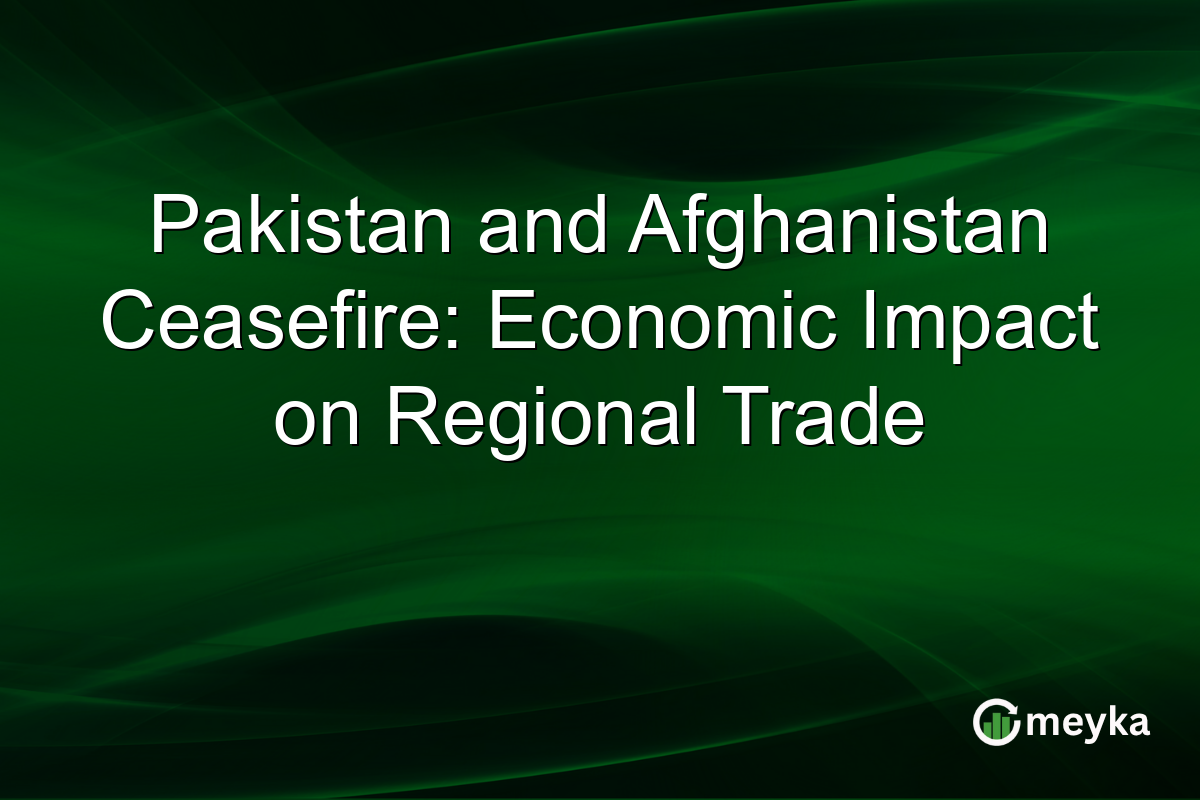Pakistan and Afghanistan Ceasefire: Economic Impact on Regional Trade
Recent developments have highlighted the importance of the Pakistan Afghanistan ceasefire, especially for regional economic stability. With major border crossings between these nations closed, traders have been facing significant disruptions. The focus keyword, “Pakistan Afghanistan ceasefire,” is gaining traction due to its implications for trade and economic ties. The ongoing closures have not only cost Afghan traders millions daily but also affected the economic landscape of both countries. Maintaining stability is more crucial than ever for economic prosperity in the region.
Continue Reading on Meyka
This article is available in full on our main platform. Get access to complete analysis, stock insights, and more.
Read Full Article →





